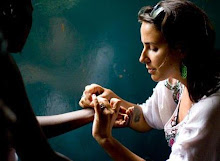The Emergence of Genetic Reality and The Web 2.0 present different forms of communication and transfer of knowledge. The strengths and limitations of the form of a book or otherwise printed text is at once the same: its authority, or its presumed reliability. Our culture puts a great amount of faith, trust, and prestige in the academic text; this can be illustrated by how an argument is made instantly stronger with the insertion of a cited statistic, or the requirements for college papers to use academic sources as opposed to unreliable internet sources. It is helpful to have an authoritative form, for many of these printed texts, such as articles in academic journals, have gone under extensive scrutiny by peer review boards. Copyright laws also ensure a certain amount of reliability. This helps to provide for some sort of common ground of trusted knowledge. However, this authority can (and is) certainly taken advantage of. In Telling the Truth about Damned Lies and Statistics, Best points out that not only do many people read a claim or statistic in an academic text and accept it without question, but they repeat these claims and statistics in their own papers or conversations. Many of these claims, Best calls them "mutant statistics," are highly implausible and are unfortunately taken for granted. I'm going to ask my fellow classmates (hopefully without self-incrimination), have you ever inserted an academic citation in order to bolster an argument in a paper which perhaps takes the intended claim slightly out of context or without being 100% sure that it is actually reliable information (accounting for biases and slants)? I read another interesting article that calls into question the authority given to written history, A City of Shadowy Outlines. It is an ethnography of Bedouin tribes in central Jordan, where the author runs into great trouble in attempting to document histories of tribal boundaries because the tribes themselves relied on an oral history as opposed to written. It seems to the ethnographer that he cannot find a reliable account of their histories, because each tribe speaks from a different perspective. This brings to light the assumption that written histories are "true" perhaps because the face behind the writing is erased. However, every written account comes from a certain perspective with different racial, ethnic, political, social class, and gender ties and motivations. There are benefits of having some sort of authoritative transmission of knowledge such as the printed text, but there are also many risks in accepting the information blindly.
As with printed text, the strengths and weaknesses of an online forum like Wesch's youtube video are the same: its innovativeness. The internet provides for new and interesting ways to present information. The Web 2.0 is a discussion about implications of the web's innovations by utilizing these very innovations: an artistic video with an awesome soundtrack, meddling with and altering websites. It captures and excites the audience, as well as making it more accessible to a wider range of audiences than the traditional, authoritative printed text. However, Wesch points to the possible negative, and indeed dangerous, implications of these innovations. The scene in the video where Wesch edits and deletes the entire Wikipedia entry illustrates these risks perfectly. In fact, I just looked up "innovativeness" on Dictionary.com to make sure it was a correct form of the word, and who knows who edited that entry? At the end of the video, Wesch declares that the new possibilities made available by the web will require us to rethink many things, among them ethics, rhetoric, privacy, etc. There is a cultural lag in how to deal with the amazing possibilities that the internet opens up.
Every medium used to communicate research will have both positive and negative implications, and I'm not sure I can say which is more valuable. However, I think for my project with squatting, using the internet as a medium might be preferable as I find its ability to be more accessible to a larger audience very important, and can be more fun and intersting as well.
Sunday, May 11, 2008
Subscribe to:
Post Comments (Atom)

No comments:
Post a Comment